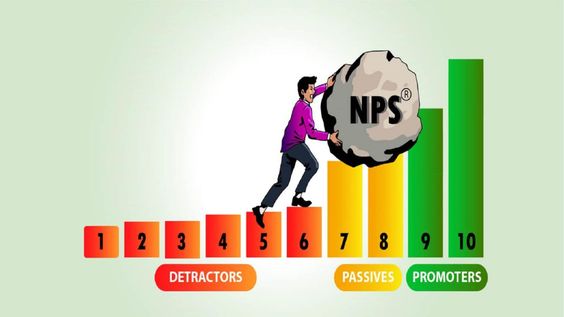Reynaldo Lugtu Jr. l March 15, 2024 l The Manila Times

BUSINESS leaders have long hailed the Net Promoter Score (NPS) as a critical metric for assessing customer satisfaction and loyalty. However, in recent times, debates have arisen regarding its continued relevance in today’s dynamic market landscape. As businesses strive to adapt to evolving consumer preferences and behaviors, the question arises: Is the Net Promoter Score still relevant?
To delve into this matter, let’s first understand what the Net Promoter Score entails. Developed by Fred Reichheld and introduced in 2003, the NPS measures the likelihood of customers to recommend a company’s products or services to others. It is calculated based on responses to a single question: “On a scale of 0 to 10, how likely are you to recommend our product/service to a friend or colleague?” Respondents are then categorized into three groups: Promoters (scoring 9-10), Passives (scoring 7-8), and Detractors (scoring 0-6). The NPS is derived by subtracting the percentage of Detractors from the percentage of Promoters.
But today, numerous voices within the business community have raised doubts about the efficacy of the NPS as a stand-alone measure of customer sentiment. While it provides a snapshot of customer loyalty, critics argue that it lacks depth and fails to capture the multifaceted nature of customer experience.
Studies have shed light on the limitations of relying solely on the NPS for gauging customer satisfaction. Research conducted by the London School of Economics and Political Science (LSE) found that the NPS is not always a reliable predictor of customer behavior. The study revealed instances where customers with high NPS ratings exhibited low repurchase intentions, indicating a disconnection between advocacy and actual buying behavior.
Moreover, as consumer behavior continues to evolve in the digital age, traditional metrics like the NPS may struggle to keep pace with changing dynamics. The rise of social media and online review platforms has empowered consumers to voice their opinions more freely, rendering the NPS alone insufficient in capturing the breadth of customer sentiment.
In light of these challenges, businesses are increasingly turning to complementary metrics and methodologies to gain a more comprehensive understanding of the customer experience. Customer Effort Score (CES), for instance, measures the ease with which customers can interact with a company to resolve issues or accomplish tasks. By focusing on minimizing customer effort, businesses can enhance satisfaction and loyalty, complementing insights derived from the NPS.
Additionally, the advent of big data analytics has opened new avenues for understanding and analyzing customer feedback. Sentiment analysis tools sift through vast amounts of unstructured data from sources such as social media, online reviews, and customer surveys to extract valuable insights into customer sentiment. By harnessing these advanced analytics capabilities, businesses can gain deeper insights into the nuances of customer preferences and behaviors, augmenting the traditional NPS framework.
Quite recently, many leading companies are adopting a holistic approach to customer experience management that goes beyond the confines of traditional metrics. By integrating NPS data with qualitative feedback, behavioral analytics, and real-time customer interactions, businesses can paint a more nuanced picture of customer sentiment and tailor their strategies accordingly.
Furthermore, the ongoing digital transformation has facilitated the integration of customer feedback into every facet of the organization, enabling agile decision-making and continuous improvement. From product development to marketing campaigns and customer support initiatives, businesses are leveraging real-time feedback loops to iteratively enhance the customer experience and drive sustainable growth.
While the Net Promoter Score remains a valuable tool for gauging customer loyalty, its relevance in today’s complex business landscape is contingent upon its integration with complementary metrics and advanced analytics methodologies. By adopting a holistic approach to customer experience management and leveraging the power of big data analytics, businesses can unlock deeper insights into customer sentiment and drive meaningful improvements across the organization.
In summary, while the Net Promoter Score continues to serve as a foundational metric for assessing customer loyalty, its relevance in today’s dynamic market environment is subject to scrutiny. By complementing NPS data with additional metrics and advanced analytics techniques, businesses can gain a more comprehensive understanding of customer sentiment and drive sustainable growth in the digital age.
*** The author is the founder and CEO of Hungry Workhorse, a digital, culture, and customer experience transformation consulting firm. He is a fellow at the US-based Institute for Digital Transformation. He is the chairman of the Digital Transformation IT Governance Committee Finex Academy. He teaches strategic management and digital transformation in the MBA Program of De La Salle University. The author may be emailed at rey.lugtu@hungryworkhorse.com

